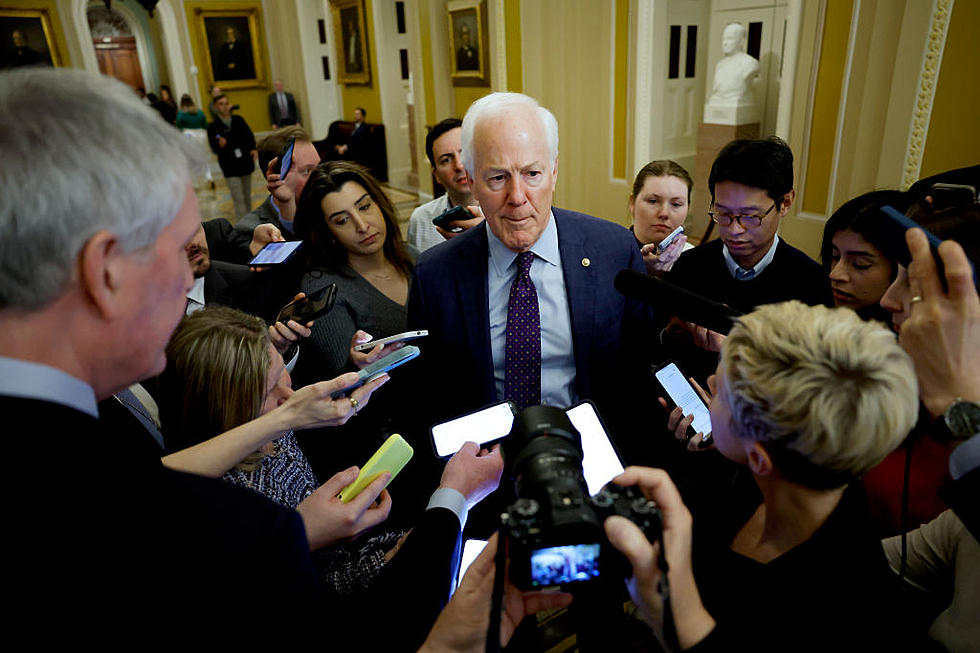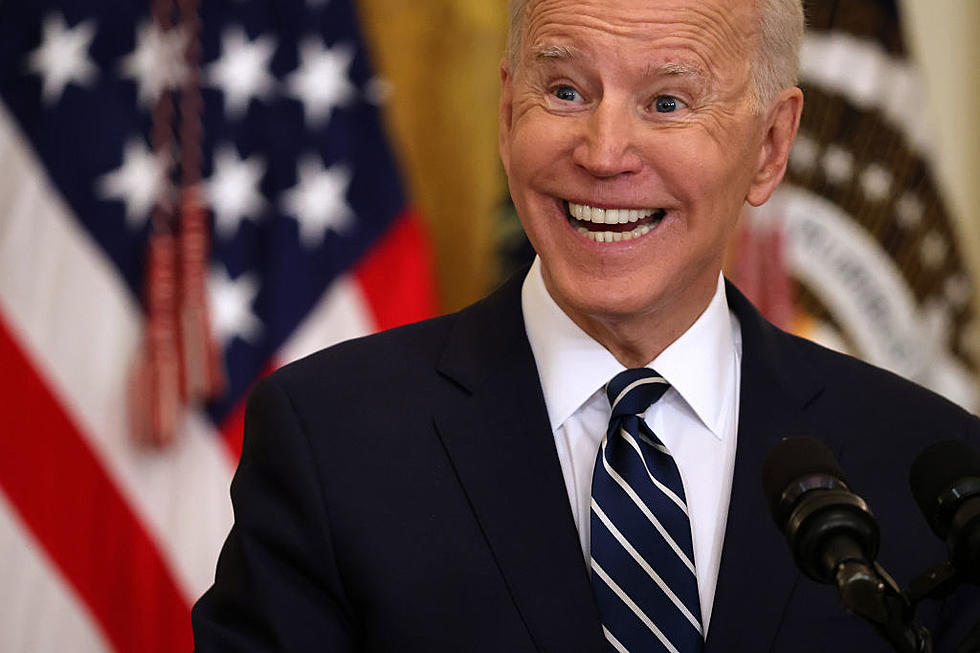
Chad’s Morning Brief: Immigration Reform and Border Security, Future of the Republican Party, & More
Here is your Morning Brief for the morning of June 4, 2013. Give me your feedback below and tune in to The Chad Hasty Show for these and many more topics from 8:30 to 11am.
1. Border Security and Immigration (link)
Senator Marco Rubio has to be satisfied with the border security requirement in the Senate immigration reform legislation. Otherwise the legislation is doomed. According to Politico, Rubio has a proposal that would let Congress write the border strategy instead of the Department of Homeland Security.
And whatever happens, it has to keep Sen. Marco Rubio (R-Fla.) satisfied.
Rubio, a key member of the Gang of Eight, is shopping around a proposal to have Congress — not the Department of Homeland Security — write the border control strategy that would be a prerequisite for most of the other elements of reform. Rubio hasn’t yet landed on specific parameters, but, arguing that Americans don’t trust their government to get it right, Rubio wants lawmakers to craft the plan at the outset, rather than leave the details up to the Obama administration.
But already, reform proponents worry that the Senate supermajority is an elusive goal that could undermine the bill, particularly on border security.
“We are advocating for a strong and tight and effective a bill as possible. If that means we are targeting 62 votes, then 62 on a strong bill is better than 75 on a weak bill that looks like a special interest bonanza,” said Marshall Fitz, a veteran of the 2006 and 2007 reform fights who now directs immigration policy at the liberal Center for American Progress.
Rubio doesn’t see how the current version of the legislation gets enough votes to break a filibuster, let alone the 70-plus votes that Gang of Eight leaders want. Republicans view border security as a threshold issue, and many have told him that the requirements must be tightened before they can even consider backing the bill, Rubio has said.
“It’s very simple. If we can come up with a plan that people have confidence in for the border, I believe we’ll have immigration reform,” Rubio said recently on “Hannity” on Fox News. “If we cannot, we will not, and we should not. I don’t think it will pass without those measures in there. I just don’t.”
Rubio has often gotten his way in the Gang of Eight deliberations. Well aware that his continued involvement is critical to the cause of bipartisan immigration reform, the group has made a series of concessions that give him rhetorical, if not substantive wins.
He wanted a cut-off date that prevented recent undocumented immigrants from legalizing, and got it. He wanted to sell the Gang of Eight bill to conservative media before the official release, and did it despite the group’s oath of secrecy. He wanted an extended debate in the Judiciary Committee, and secured one. He was “disappointed” when the committee rejected a stronger system for tracking visa holders, and the panel returned several days later to pass a fix that satisfied him.
Many have wanted to write-off Rubio because of immigration. Not me. I look forward to seeing what Rubio can hammer out. Rubio knows how critical this is for not only the country to get right, but also for his political career.
2. The GOP and Young Voters (link)
The news isn't good for the Republicans when it comes to younger voters. A new report out shows just how bad the GOP brand is doing with young people.
Mitt Romney and the Republican Party lost the youth vote in 2012 because the majority of Americans under 30 have come to believe that the GOP doesn’t care about people and is close-minded, according to a report released by the College Republican National Committee.
Even though President Barack Obama won 5 million more votes than former Massachusetts Gov. Mitt Romney among the under-30 population during the 2012 presidential election, the CRNC believes it can recapture the under-30 vote.
“Theoretically, the good news in all of this is that while the Republican Party’s negative brand is being driven heavily by a perceived lack of open-mindedness and caring, the other brand attributes that matter to young people — intelligence, a strong work-ethic, and competence — are not out of reach and are certainly up for grabs,” the report found.
The 95-page report used data from a pair of surveys of 800 registered voters between the ages of 19-29 nationwide in order to examine how the party lost the youth vote and create a plan on how to refocus “Grand Old Party for a Brand New Generation.” The report also pulled anecdotal evidence from a trio of focus groups featuring young Obama voters.
“Young Voters have broken for the Republican Party in the past, and not just in the midterm elections,” the CRNC said on its website. “We believe that Republicans can win young voters, but that it will require a significantly different approach than has been use in recent elections.”
The report cited the Ronald Reagan’s 1984 winning of 59 percent of the youth vote as the target goal to replicate.
The report also pointedly addressed one of today’s hot-button issues for American youth: gay marriage. The Republican Party’s hard stance on this “open-minded” issue has turned many millennials away from the GOP, it found.
In one of the surveys cited, 25 percent said they would not vote for someone who opposed same-sex marriage.
“On the ‘open-minded’ issue, yes, we will face serious difficulty so long as the issue of gay marriage remains on the table,” the CRNC wrote. “In the short term, the party ought to promote the diversity of thought within its ranks and make clear that we welcome healthy debate on the policy topic at hand.”
Many young voters are also frustrated by the Republican Party’s perceived lack of altruism. One Obama voters who was interviewed in the study perceived that the Republican Party “will pat you on your back when you make it, but wont offer you a hand to help you get there.”
In order to appeal to today’s youth, the Republican Party must reshape its image while holding to conservative values, CRNC posited.
“‘Caring’ does not have to equal ‘giving out free stuff’ and ‘open-minded’ does not have to equal ‘being liberal.’ It’s time we try to take these attributes back,” the report said.
In my opinion so much of this has to do with messaging and not really where Republican's stand on the issues. Yes, the GOP should allow for some debate on most issues but far too often when someone says to allow for diverse opinion what they really mean is, change your opinion. Either way, I don't expect young people to become more conservative overnight.
3. US to Sign UN Arms Treaty (link)
Secretary of State John Kerry announced yesterday that the United States would sign onto an U.N arms treaty.
Kerry, releasing a written statement as the U.N. treaty opened for signature Monday, said the U.S. "welcomes" the next phase for the treaty, which the U.N. General Assembly approved on April 2.
"We look forward to signing it as soon as the process of conforming the official translations is completed satisfactorily," he said. Kerry called the treaty "an important contribution to efforts to stem the illicit trade in conventional weapons, which fuels conflict, empowers violent extremists, and contributes to violations of human rights."
The treaty would require countries that ratify it to establish national regulations to control the transfer of conventional arms and components and to regulate arms brokers, but it will not explicitly control the domestic use of weapons in any country.
Still, gun-rights supporters on Capitol Hill warn the treaty could be used as the basis for additional gun regulations inside the U.S. and have threatened not to ratify.
Last week, 130 members of Congress signed a letter to Obama and Kerry urging them to reject the measure for this and other reasons.
"As your review of the treaty continues, we strongly encourage your administration to recognize its textual, inherent and procedural flaws, to uphold our country's constitutional protections of civilian firearms ownership, and to defend the sovereignty of the United States, and thus to decide not to sign this treaty," the lawmakers wrote.
The chance of adoption by the U.S. is slim, even if Obama goes ahead and signs it -- as early as Monday, or possibly months down the road. A majority of Senate members have come out against the treaty. A two-thirds majority would be needed in the Senate to ratify.
What impact the treaty will have in curbing the estimated $60 billion global arms trade remains to be seen. The U.N. treaty will take effect after 50 countries ratify it, and a lot will depend on which ones ratify and which ones don't, and how stringently it is implemented.
The United Nations has organized a high-level signing ceremony at U.N. headquarters on Monday -- a sign of the treaty's global importance -- and several dozen countries are expected to sign, the first step to ratification.
Thoughts?
Other Top Stories:
These and many more topics coming up on today’s edition of The Chad Hasty Show. Tune in mornings 8:30-11am on News/Talk 790 KFYO, streaming online at kfyo.com, and now on your iPhone and Android device with the radioPup App. All guest interviews can be heard online in our podcast section after the show at kfyo.com.
More From News/Talk 95.1 & 790 KFYO









